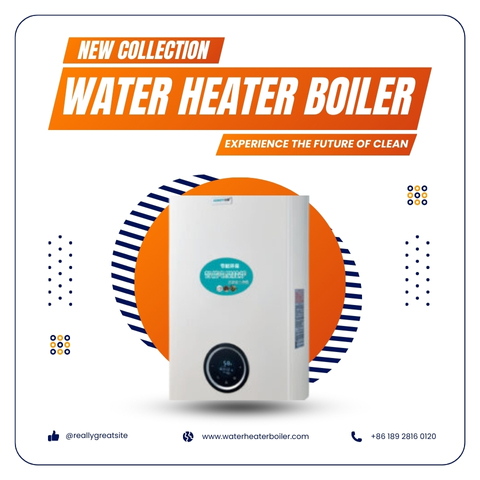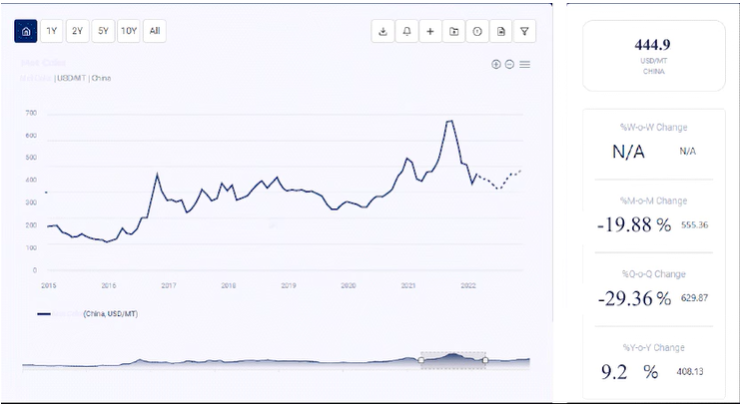When it comes to powering your forklift fleet, the choice of battery can make a world of difference—not just in performance but also in long-term costs. Enter the lithium ion forklift battery, a game-changer rapidly gaining traction across various industries. Known for its efficiency and reliability, this innovative technology has transformed how businesses operate their material-handling equipment. But why should you consider making the switch? The answer lies in improved productivity and in substantial savings over time. Let’s dive into how investing in lithium-ion batteries could be one of the smartest financial decisions for your operation!
Understanding the Lifespan of Lithium-Ion Batteries for Forklifts
Lithium-ion batteries are engineered for longevity. Typically, they can last 5 to 10 years, depending on usage and care. This is significantly longer than traditional lead-acid batteries, which may only serve you for 3 to 5 years. The technology behind lithium-ion cells allows for deeper discharges without damaging the battery’s health. This means they can operate at maximum capacity longer before needing a recharge.
Additionally, these batteries have fewer maintenance requirements. Unlike their counterparts, which need regular water top-ups and equalization charges, lithium-ion models simply plug in when needed. Their ability to be charged quickly during breaks also contributes to their lifespan efficiency. A fast-charge feature enables forklifts to run throughout shifts with minimal downtime, making them ideal for busy operations seeking optimal productivity.
Forklift Battery Lithium Ion Maintenance Tips for Longevity
Maintaining your forklift battery lithium ion can significantly extend its lifespan and ensure optimal performance. Here are some practical tips to keep in mind. First, always follow the manufacturer’s charging guidelines. Avoid overcharging or letting the battery drain completely, as both practices can shorten its life. Ideally, it would help to charge the battery when it gets down to about 20%.
Regularly inspect the battery terminals for corrosion or buildup, which can interfere with electrical connections. Keeping them clean will ensure efficient energy transfer and reduce wear on components. Temperature is another critical factor. Lithium-ion batteries perform best in moderate conditions; extreme heat or cold can impact their efficiency and longevity.
Store your forklifts in a climate-controlled environment whenever possible. Make sure that you use dedicated chargers designed specifically for lithium-ion batteries. Using incompatible chargers may lead to damage and void any warranties. By following these maintenance tips, you not only enhance the lifespan of your lithium-ion forklift battery but also enjoy cost savings over time through reduced replacement frequency and improved operational efficiency. Investing a little effort into proper care pays off significantly down the road.
Li-Ion Battery Forklift: A Comprehensive Guide to Performance and Cost
When considering the investment in a lithium-ion forklift battery, assessing both performance and cost is essential. Lithium-ion batteries have gained popularity due to their impressive efficiency and longer operational life compared to traditional lead-acid options.
- One key factor is their rapid charging capabilities. Unlike conventional batteries that require long hours for a full charge, lithium-ion batteries can recharge 100% in just a few hours or even less. This means less downtime for your forklifts, enabling more productivity throughout the workday.
- Lithium-ion batteries typically last up to five times longer than their lead-acid counterparts in terms of lifespan. This longevity translates into fewer replacements over time, providing significant savings on battery costs alone. Additionally, they are designed with advanced technology that optimizes energy use, further enhancing your operation’s efficiency.
- Lithium-ion systems also tend to lower maintenance costs. These batteries don’t require routine watering or equalization processes like traditional models, and their robust design minimizes issues related to sulphation common in lead-acid designs.
- While the initial investment might be higher for lithium-ion forklift batteries than other types, this upfront cost often pays off through reduced operational expenses and increased efficiency over time.
By understanding these factors—performance benefits alongside potential savings—it becomes clear how switching to a lithium-ion forklift battery could be an intelligent financial decision for warehouses and logistics operations.
The Cost Savings of Switching to Li Ion Battery Forklift
Switching to a li ion battery forklift can lead to significant cost savings for businesses over time. One of the primary advantages is reduced energy costs. Lithium-ion batteries are more efficient than traditional lead-acid options, allowing faster charging and less downtime during operations. Additionally, these batteries have a longer lifespan, often up to 5 times longer than their lead-acid counterparts. This longevity means fewer replacements, translating into lower overall investment in battery technology over the years.
Lithium-ion batteries also considerably lower maintenance costs. They require minimal upkeep compared to other types of batteries, which need regular watering and equalization charges. Eliminating these maintenance tasks frees up time and resources for your operations.
Moreover, improved performance leads to enhanced productivity on the warehouse floor. With quicker charge times and consistent power delivery, forklifts with lithium-ion batteries can operate efficiently without frequent interruptions. This increased efficiency boosts output and contributes positively to your bottom line. Ultimately, transitioning from traditional battery systems to lithium-ion offers clear financial benefits while enhancing operational reliability and effectiveness in material handling applications—a smart move as businesses strive for greater efficiency amid rising costs.
The Environmental Impact of Using Lithium-Ion Forklift Batteries
Lithium-ion forklift batteries offer significant environmental advantages over traditional lead-acid options.
Reduced Carbon Footprint
Lithium-ion batteries have a longer lifespan than lead-acid batteries, so they must be replaced less frequently. This results in a reduction in battery production and disposal, reducing the carbon footprint associated with battery manufacturing.
Energy Efficiency
Lithium-ion batteries are more energy-efficient than lead-acid batteries, requiring less charging time and energy to operate. This results in lower energy consumption and reduces the environmental impact of forklift operations.
No Hazardous Materials
Lead-acid batteries contain hazardous materials such as sulfuric acid and lead, which can harm the environment if not disposed of properly. In contrast, lithium-ion batteries do not contain any dangerous materials, making them safer for the environment.
Reduced Emissions
Forklifts powered by lithium-ion batteries produce zero emissions, unlike those powered by fossil fuels or lead-acid batteries. This is especially beneficial for indoor use where air quality is a concern.
Longer Lifespan
Lithium-ion batteries’ longer lifespan means fewer replacements are needed over time, reducing waste and the environmental impact of battery production and disposal.
How Lithium Ion Batteries for Forklifts Improve Safety and Reduce Downtime?
Lithium ion batteries for forklifts significantly enhance safety in the workplace. They provide consistent power so operators can rely on their performance without unexpected energy drops. This reliability reduces the risk of accidents caused by sudden battery failures. Additionally, lithium-ion technology allows for faster charging times compared to traditional lead-acid batteries. Quick recharge capabilities mean that forklifts spend less time idle and more time working.
The reduced downtime translates into increased productivity. Operators can swiftly swap or charge batteries during breaks, ensuring smooth operations. Furthermore, these batteries have built-in management systems that monitor health and performance metrics. Early detection of potential issues helps prevent malfunctions before they escalate into major problems. This proactive approach not only safeguards employees but also minimizes disruptions to workflow—creating a safer and more efficient work environment overall.
Myths about Lithium-Ion Batteries for Forklifts Debunked
Several things surrounding lithium-ion batteries for forklifts could be improved.
- One common myth is that they require constant, complicated maintenance. These batteries are designed for minimal upkeep compared to traditional lead-acid options.
- Another myth suggests that lithium-ion batteries have a significantly shorter lifespan. Contrary to this belief, they often last longer than their counterparts, thanks to advanced technology and efficient energy management systems.
- Some people think lithium-ion batteries can only be charged with specialized equipment. However, most modern chargers are compatible with these batteries, making the transition easier than expected.
- There’s a notion that using lithium-ion leads to overheating issues during operation. When properly managed and maintained, these batteries operate safely within recommended temperature ranges without excessive heat generation.
Understanding the truth about lithium-ion forklift batteries helps businesses make informed decisions while maximizing efficiency and safety.
Electric Forklift Lithium Ion Battery Maintenance Tips for Longevity
Regular maintenance ensures that electric forklift lithium ion battery achieves its maximum lifespan. Here are some practical tips to keep in mind.
- First, always check the battery’s state of charge before use. Lithium-ion batteries perform best when charged between 20% and 80%. Avoid letting them discharge completely, as this can harm their longevity.
- Next, note temperature control. These batteries thrive in moderate temperatures. Extreme heat or cold can affect performance and significantly reduce lifespan. Store your forklift in a climate-controlled environment to mitigate these risks.
- Additionally, implement a proper charging routine. Lithium-ion batteries benefit from quick daily charges whenever downtime occurs, unlike traditional lead-acid batteries that require long charging cycles. This flexibility enhances productivity without compromising battery life.
- Monitor the battery and related components, such as connectors and cables, regularly for signs of wear or damage. Keeping everything clean helps prevent potential issues down the road.
- Consider investing in training for your team regarding best practices for handling these advanced systems safely and effectively. Educated operators will not only maximize efficiency but also extend the overall lifespan of your equipment.
By following these tips consistently, you’ll help ensure that your investment in lithium-ion forklift technology pays off financially and operationally over time.
Conclusion
Switching to a lithium ion forklift battery can be a game-changer for businesses. The long-term benefits far outweigh initial investments. Not only do these batteries enhance efficiency, but they also provide significant cost savings over time. Maintenance is minimal, and the lifespan is impressive compared to traditional options. Environmental considerations add another layer of appeal. Companies increasingly priorities sustainability, making lithium-ion an attractive choice in today’s eco-conscious market. Safety features further strengthen their case. Reduced downtime means operations run smoothly without unnecessary interruptions.
FAQs
What is a li ion battery forklift?
A li ion battery forklift is a type of rechargeable battery commonly used to power electric forklifts. Known for their efficiency and longevity, these batteries provide consistent power without the downtime associated with traditional lead-acid batteries.
How long do lithium-ion batteries last in forklifts?
Lithium-ion batteries can typically last 10 to 15 years, depending on usage and maintenance. Their lifespan significantly surpasses conventional lead-acid batteries, making them a cost-effective choice.
Are lithium-ion forklift batteries environmentally friendly?
Lithium-ion forklift batteries are generally more environmentally friendly than lead-acid alternatives. They have a lower carbon footprint during production and use less energy for recharging.
What maintenance do lithium-ion forklift batteries require?
Lithium-ion forklift batteries require minimal maintenance compared to lead-acid options. Regular checking and keeping connections clean will help maximize performance and extend their lifespan.
Can I retrofit my existing forklifts to use lithium-ion batteries?
You can often retrofit your existing forklifts to support lithium-ion technology. However, consulting with manufacturers or experts who can assess compatibility based on your specific equipment model is essential.
| Related Business Listings |
| Contact Directory |
| Local Business Profiles |




